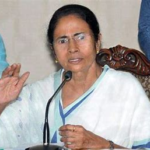
In a significant move, the Academic Council of Delhi University has passed a motion to remove a chapter on Pakistan’s national poet, Muhammad Iqbal, from the political science curriculum. The decision has been met with mixed reactions, with Delhi University Vice Chancellor Yogesh Singh stating that there is no room in the syllabus for those who sowed the seeds of partition.
Muhammad Iqbal, born in 1877 in Sialkot, undivided India, is widely recognized for penning the famous song “Saare Jahan Se Achha” and is often credited with giving birth to the idea of Pakistan. However, the Vice Chancellor argued that Iqbal’s support for the Muslim League and the Pakistan Movement, along with his role in advocating for the partition of India, make him unsuitable for inclusion in the syllabus.
The chapter in question, titled ‘Modern Indian Political Thought,’ was part of the BA sixth-semester paper. Following the Academic Council’s decision, the matter will now be presented before the executive council of Delhi University for a final call.
During the nearly 15-hour-long meeting, the Academic Council also approved several other proposals. The syllabus for the fourth, fifth, and sixth semesters of various courses under the Undergraduate Curriculum Framework (UGCF) 2022 was passed. Additionally, the council considered and unanimously approved the recommendations of the standing committee regarding a proposed BA course by the philosophy department. The courses offered by the department include “Philosophy of Dr. Ambedkar,” “Philosophy of Mahatma Gandhi,” and “Philosophy of Swami Vivekananda.”
Furthermore, the Vice Chancellor urged the head of the philosophy department to explore the possibility of including Savitribai Phule in the curriculum. He also advised the head of the economics department at the Delhi School of Economics to prepare a paper on the economic thoughts of Dr. B.R. Ambedkar, emphasizing the need to teach different economic models.
In another development, the Academic Council approved the establishment of the Centre for Independence and Partition Studies. The center aims to conduct research on lesser-known heroes and events of the freedom movement, particularly focusing on the tragedy of the Partition of India. It will explore the challenges faced in achieving independence and the impact of the geographical division of the country on its people.
The council also gave the green light to two new five-year LLB courses and the establishment of a Tribal Studies Centre. The latter will focus on studying various tribes in India, their social, cultural, linguistic, religious, economic, and environmental aspects, as well as their contributions to India’s freedom struggle and folk traditions.
Amidst the various approvals, the Academic Council also passed the Integrated Teacher Education Programme (ITEP) course for the academic session 2023-24. However, six members of the council dissented against the resolution, highlighting the lack of consultation with the teachers.
The decision to remove the chapter on Muhammad Iqbal from the syllabus has sparked a debate over the selection of curriculum content and the inclusion or exclusion of historical figures associated with partition. While some argue that Iqbal’s role in the creation of Pakistan warrants his exclusion, others believe that a comprehensive understanding of history requires a nuanced approach that encompasses all perspectives.
As the matter moves to the executive council of Delhi University for a final decision, it remains to be seen how this change in the syllabus will impact the academic discourse and shape the students’ understanding of India’s complex history.





